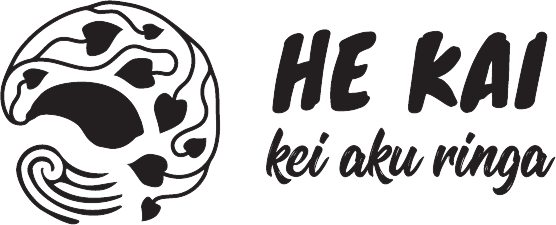11 Dec The Future of Foods
Our environment has affected us in many ways in terms of kai. Our interdependent ecosystem is continually challenged by human intervention. We are now far removed from the tools our ancestors left behind in order for us to maintain a healthy lifestyle.
The Future of Foods Conference, hosted by Hawkes Bay Business, provided a lot of insights into the purchasing, growing, business models and consumption of foods. Apart from some inspirational kōrero and testing the beautiful food – Non-dairy cheese, insects, and beautiful sweet slices made up of Cricket Powder, there was one particular pātai that really pulled the tia (umbilical cord).
“How do we make ourselves more relevant so our business models of food supply does not become obsolete?”
The example around this was the impact of technology making business just about non existent. For example Blockbuster vs Netflix, Book Shops vs Amazon etc.. but what has this got to do with food?
This is where it got interesting, the concept of Vertical Farm Businesses (growing vegetables and fruit indoors), where exporting could become a thing of the past. For instance, supermarkets growing their own fruit and vegetables, the combination of empty inner city buildings being used to grow indoor vegetables and fruit as a grown to order, cut and deliver system for local restaurants. Interesting huh?
The dynamics of homelife could change, with a solar powered inhouse growing system, which in turn, changes the dynamics of retail and sale process. Not to mention the possibilities of human workers no longer needed due to the rapid climb of digital innovation, such as BOT Traffic, business may lean more towards a robotic customer service system where your fridge can keep up your stock, or, furthermore, your customer service experience would be more like talking to a google search engine rather with people.
This was some pretty informative and yet heavy information to take on. Which brought me to think deeper into our traditional practices as Māori. It wasn’t so much as to the term “Business Model” but when we strip this pātai down it reflects on tikanga. Which made me rephrase my question to “How do we make ourselves more relevant so our tikanga and traditional practices do not become obsolete?”
If these insights became relevant in today’s evolving world how would it enable us to hold fast to our traditional practices? How would the maramataka still be relevant if we were to grow our own produce all year round indoors? How would we invoke our Atua if our practices were to be suppressed by alternative methods? He kai kei aku ringa? He kai mai te hangarau rānei? I’m pretty sure we all know the answer.
Food for thought…


